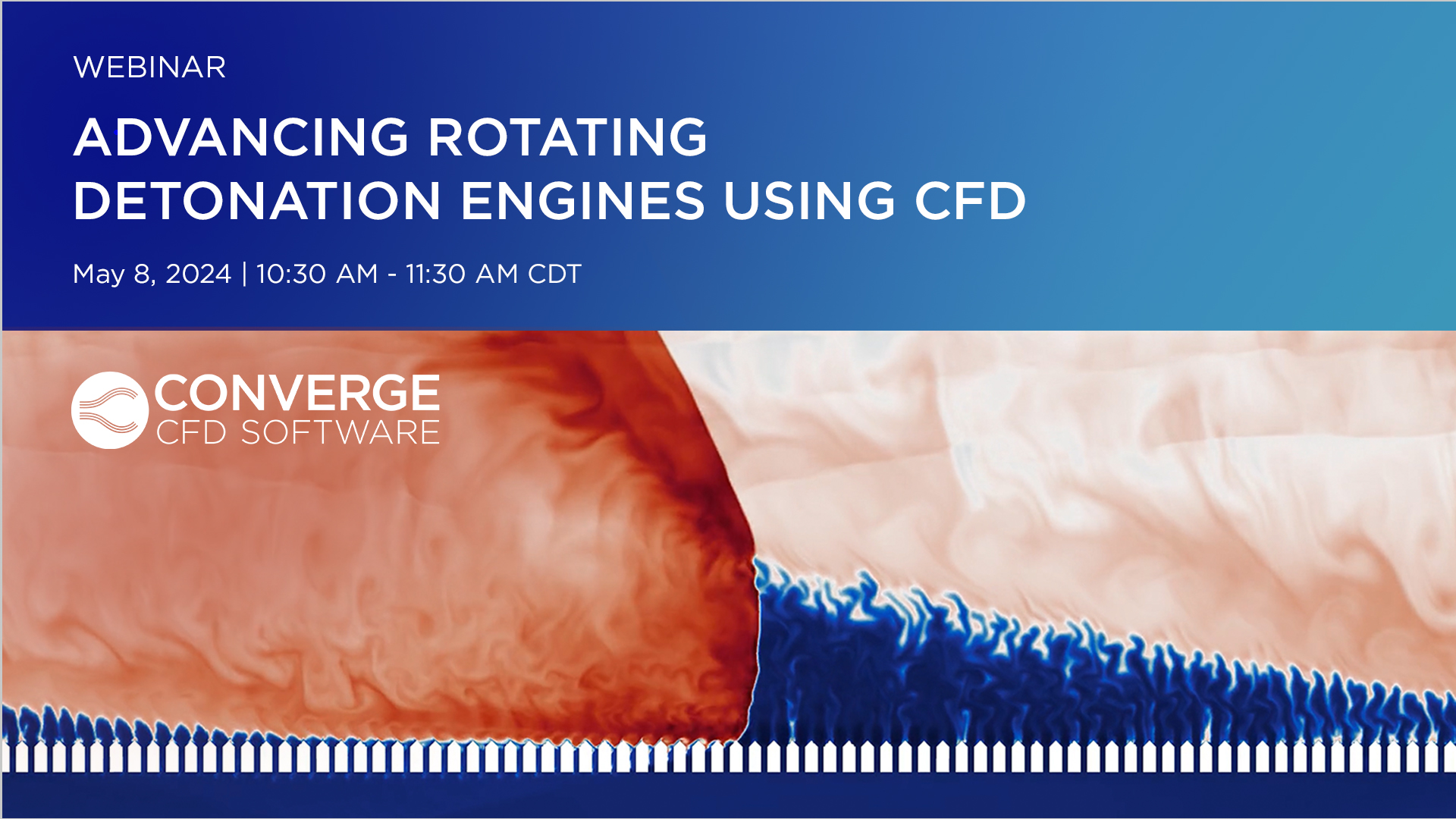
Angela Wu, Research Engineer
Convergent Science
Rotating detonation engines (RDEs) offer a number of advantages over deflagrative combustion devices, including faster heat release, higher thermal efficiency, and greater thrust. These benefits have led to significant interest in using RDEs for propulsion in various types of aircraft and rockets. In an RDE, fuel and air are injected separately into an annular chamber. Once combustion is initiated, one or more continuous detonation waves propagate azimuthally around the chamber, providing a near-steady source of high-frequency thrust without the need to initiate detonation repeatedly. In practice, RDEs exhibit losses such as parasitic combustion and contact burning, which affect the stability of the detonation waves and the thermal efficiency of the engine. Computational fluid dynamics (CFD) can offer insight into the combustion dynamics of RDEs and aid in design optimization to prevent these losses. In this webinar, we’ll discuss the tools CONVERGE CFD software offers to simulate RDEs, including autonomous meshing with Adaptive Mesh Refinement, a fully coupled detailed chemistry solver, high-fidelity RANS and LES turbulence models, and excellent parallel scaling. We’ll demonstrate how to apply these features to model hydrogen-air, methane-oxygen, and ethylene-air RDEs.